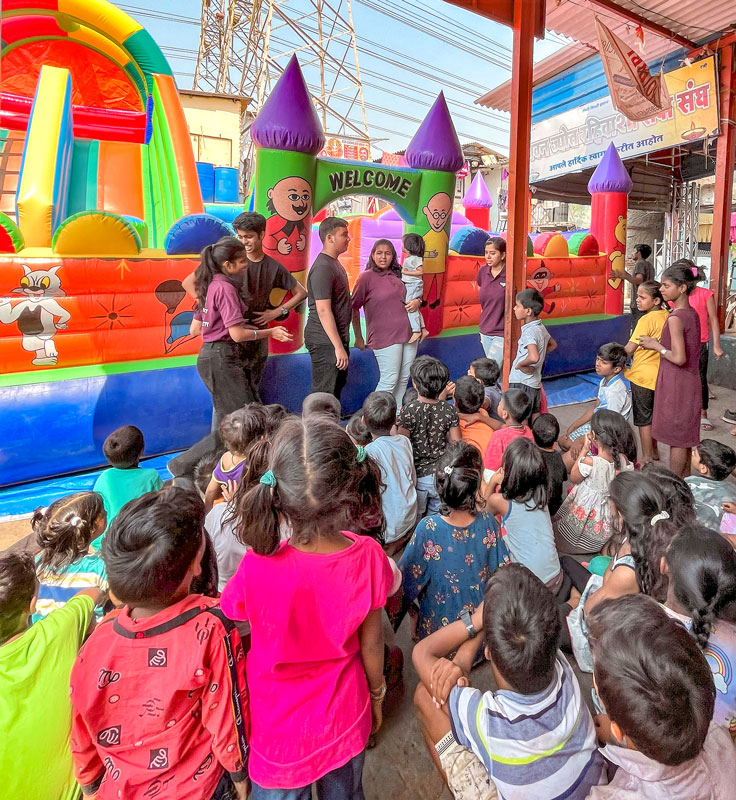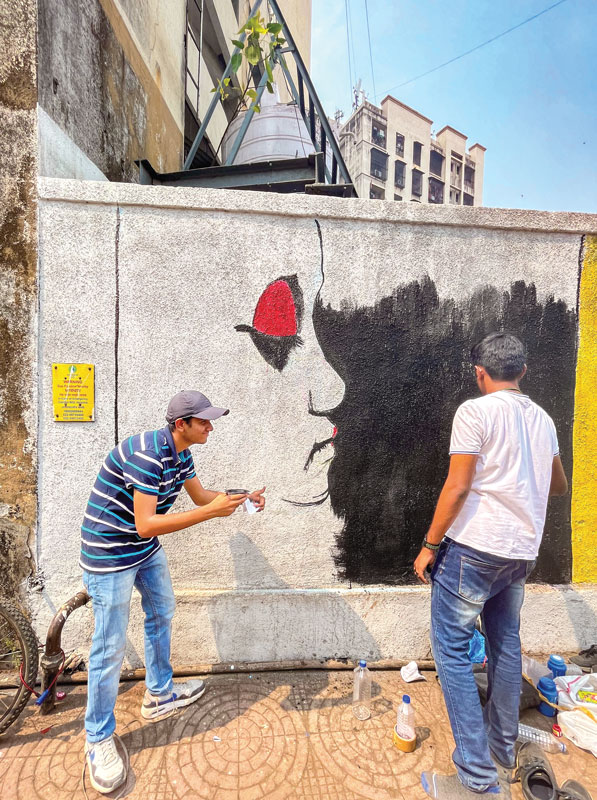A Mumbai Rotaract club dreams big
A single Rotaract club in Mumbai, Rotaract Club of Jai Hind College (RACJC), RID 3141, has done a bunch of very interesting projects, which makes its president Khushi Shetty, smile proudly as she looks back on the year just gone by. For one, she managed to do what so many other past presidents of her club had only dreamt about — hold a Lit fest, complete with a book launch.
Among the projects done by this club of 178 members, 70 per cent of them women, one of their best is the hosting of Masti Mela, a vibrant and joyful fun fair for the children of Asia’s largest slum — Dharavi. This initiative aimed to bring happiness and excitement into the lives of these children growing up in a huge slum, offering them a break from their daily, not too shiny lives.
The Model UN initiative aimed to provide students with an invaluable opportunity to delve into the world of international affairs and work collaboratively towards crafting resolutions for pressing global issues.
A variety of engaging games and activities was held to capture the children’s imagination and ignite their enthusiasm. Some of the most popular games were ball-throwing and ring toss which came with prizes when the children hit the target. ‘Find the correct tile’ was designed to improve their observation skills, and the ‘jumping jack’ gave them enough scope for screams of delight. “A candy floss stall provided a sweet treat, adding to the festive atmosphere and leaving smiles on the children’s faces. Understanding the importance of nourishment, our club ensured that the children were provided with a nutritious lunch, consisting of dishes like idli chutney, pav bhaji, and sheera for dessert. Masti Mela was not just about creating a fun fair; it was about spreading love, happiness, and a sense of community. The event showcased the transformative power of simple acts of kindness and the profound impact they can have on the lives of others,” said the 2022–23 club president Khushi.
The day ended with joy and laughter; “we believe the memories of this day will stay with these children for a long time,” said club secretary Zainab Jetpurwala.
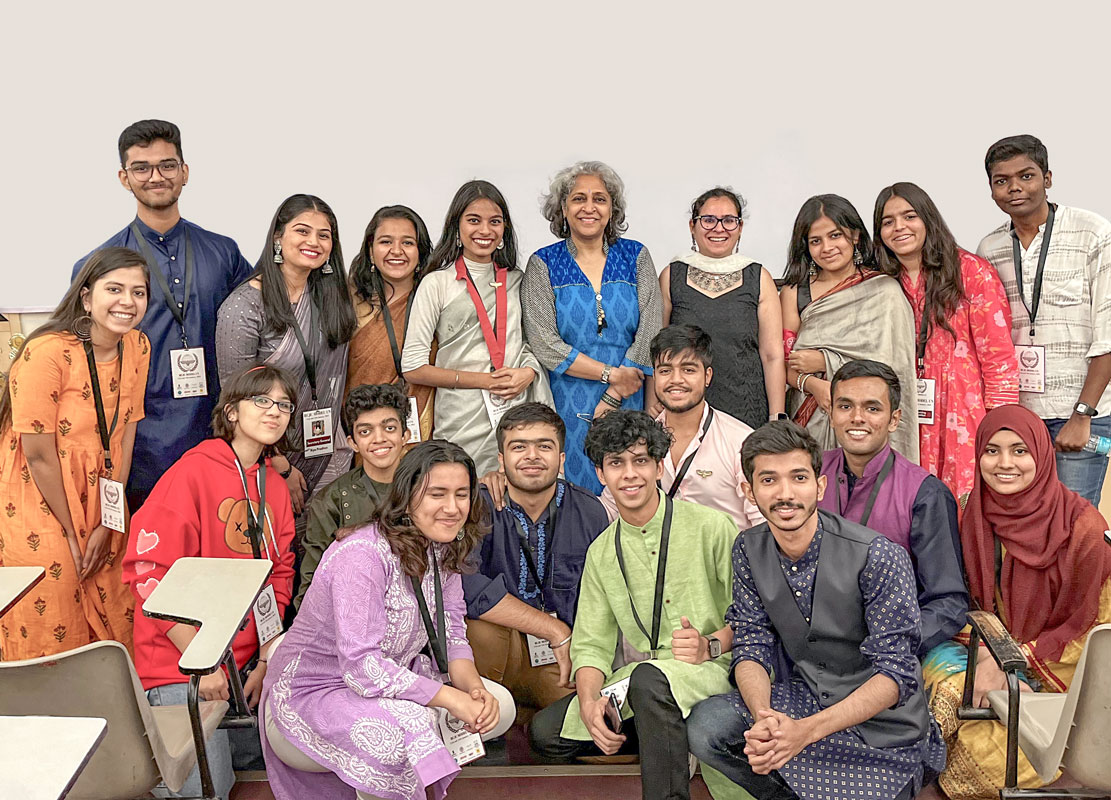
Coming to the next project, the Mumbai Students Film Festival, organised by the club recently, marked the fifth year of providing a platform to aspiring young filmmakers. The festival got 20 entries of short films of 10–12-minute duration, and showcased a diverse range of topics and perspectives. Well-known industry professionals, including Karthik Mallur, Saurabh Bharat, Priyanka Tanwar and Apoorva Shaligram, served as judges, lend-ing their expertise and guidance to the event.
“The top 10 films were selected for screening at the prestigious Creative Adda venue in Versova. The audience was captivated by the filmmakers’ artistic prowess and storytelling abilities, witnessing firsthand the depth of talent among the next generation of filmmakers. The films explored intriguing themes, including Mumbai’s vintage car culture and the hidden masks worn by teenagers in today’s complex society,” says Khushi.
Masti Mela was not just about creating a fun fair; it was about spreading love, happiness, and a sense of community.
— Khushi Shetty, IPP, RAC Jai Hind College
Prizes were given for best direction, cinematography and editing. The winners were awarded citations and monetary prizes. The festival concluded on a high note as the entire team came together to celebrate their accomplishments. The atmosphere was filled with joy and enthusiasm as the participants showcased their unity through the vibrant RACJC dance and shout.
In June, the club organised its highly anticipated Lit Fest 23 in collaboration with Speaking Souls and Re-Create Spaces, providing a vibrant platform for literary exploration and artistic expression. The itinerary was packed with captivating events, including a book launch and conversation with the author Chattanathan. A stand-up comedy show titled ‘Comedy Central,’ an open mic event called Alfaaz, a mesmerising musical evening with VibeZ, and a pop-up marketplace, were also held.
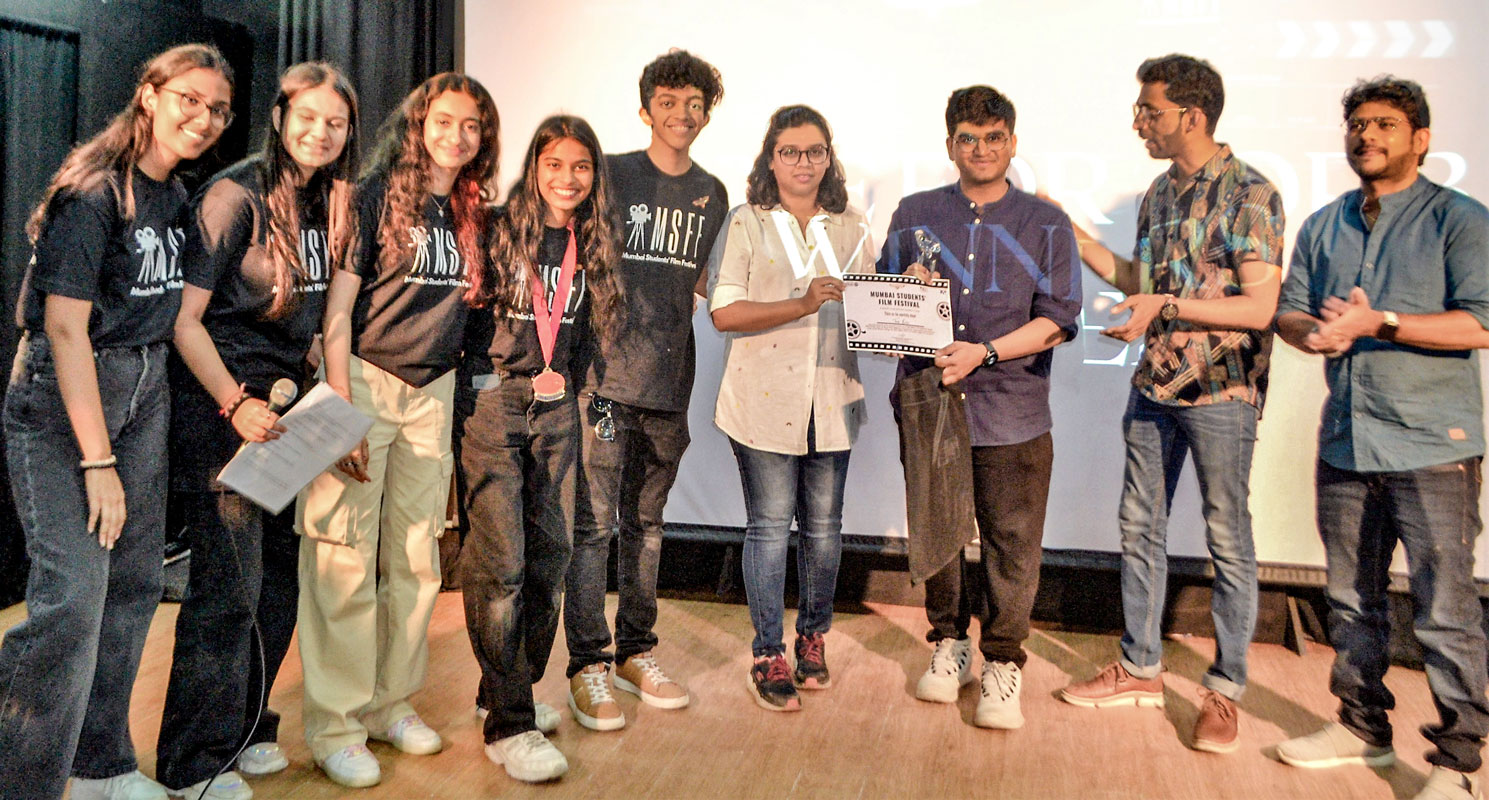
The book launch and a Q&A session with Chattanathan, author of The Heel, gave the audience an insight into his writing journey. The stand-up comedy show featured the talented comedians Rowland Dominic and Praveen Pandya, providing a refreshing break filled with laughter. “Alfaaz gave budding poets and spoken word artists a platform to showcase their work, fostering a supportive and inclusive creative community. The musical evening VibeZ featured talented musicians and singers who captivated the audience with original compositions and Bollywood Mashups, creating a mesmerising atmosphere,” adds Khushi.
The pop-up marketplace where the Rotaractors raised funds for some of these projects by giving stalls on rent, allowed small businesses to promote their brands and offered the participants a chance to explore and support local entrepreneurship. “This further enhanced the festival’s vibrant atmosphere, fostering a sense of community and collaboration,” added Zainab.
Four powerful pictures were created, capturing the essence of silenced voices and the plight of those affected by trafficking.
Very excited about pulling off a lit fest — after all the Jaipur, Bengaluru and other big literary festivals make huge headlines all the time — Khushi said: “I am so happy that we were finally able to put together a lit festival. This has been dreamt of by many past presidents, but they simply couldn’t do it. But this year, we said we have to do it. So we first talked to some of our past presidents, learnt about their dreams, ideas and plans. At the end, my team decided on a one-day event with a pop-up market.” Her core team for these events had seven members.
She explains that the pop-up market is a kind of flea market but on a smaller scale and with brand exclusivity, giving small businesses an opportunity to offer brand exclusivity, and that really interested the crowd. “We put on offer a book launch, movie discussion, stand-up comedy, poetry, and brands from small businesses… all in one place, giving the audience a different kind of experience.”

She adds that “in a bid to foster global awareness and cultivate a spirit of diplomacy among young minds, the club once again organised the fifth exciting event — an educational simulation of the United Nations. This inspiring initiative aimed to provide students with “an invaluable opportunity to delve into the world of international affairs and work collaboratively towards crafting resolutions for pressing global issues.”
The United Nations Human Rights Council (UNHRC) was simulated with the agenda of discussion being the violation of human rights in conflict zones. “Over the course of two intensive days, the simulation brought together a diverse group of students, each representing a different country. Through role play and lively debates, participants stepped into the shoes of diplomats, grappling with real-world challenges and devising innovative solutions. The event not only tested their knowledge of global affairs but also honed their negotiation, critical thinking and public speaking skills.”
We marched carrying these banners and chanting slogans against female trafficking, and wherever there was a big crowd, we stopped and recited a poem.
— Khushi Shetty, IPP, RAC Jai Hind College, RID 3141
In the end, a draft resolution was presented. Participants had the opportunity to contribute their ideas, engage in productive discussions, and collaborate to form a resolution that represented their collective wisdom. The event underlined the importance of teamwork and cooperation in achieving common goals. But to take away the grimness of the debate, the youngsters also planned an entertainment segment, where they “engaged in a series of lighthearted activities. They exchanged anonymous messages through chits, adding an element of intrigue and surprise to the proceedings. Dancing and enacting various roles provided a platform for self-expression and creativity, allowing participants to unwind and enjoy themselves,” she added.
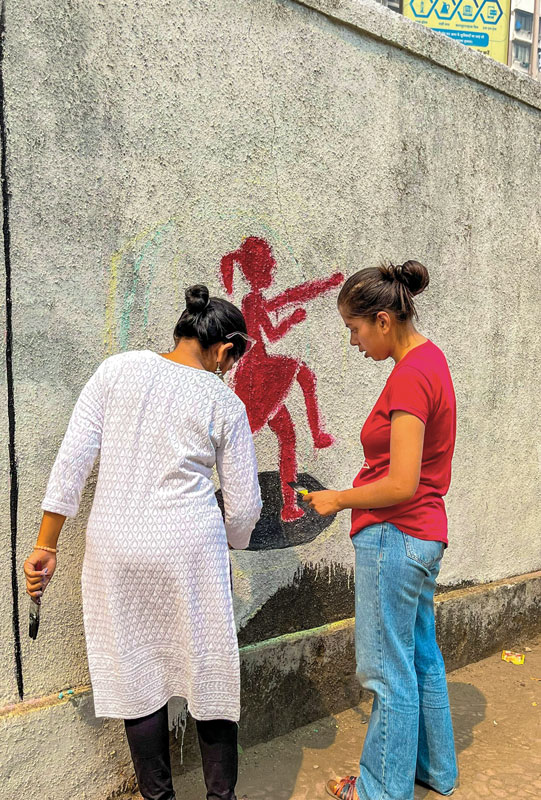
Asked what next Khushi smiles: “Now that a new Rotary year has begun, I have given the baton to the new leader, also a woman, Vedika Bansal. And our club will continue to do fun and meaningful events,” she adds.
It has become a tradition for the club to celebrate women and raise questions on gender equity and the trampling of women’s rights by awareness drives for an entire week around International Women’s Day every March. This year too, under the presidentship of Khushi Shetty, the women’s week (March 1–8) was marked by the project titled Cheekh. “The basic idea of Cheekh (scream) was to perform flash mobs across Mumbai in which we highlight the grievous issue of women’s trafficking. But this year this wasn’t possible because of permission issues. So instead of this hurdle stopping us from observing the week, we came out with alternative ideas and our team took a different approach by engaging in a series of activities to make a powerful statement and introduced new features,” says Khushi.
The major objective was to draw attention to the huge problem of women’s trafficking and the sucking of innocent young girls into Mumbai’s flesh trade. To raise awareness on this problem and urge citizens to take a stand against this heinous practice, the Rotaractors decided to put up wall paintings in the Grant Road region near the railway station. Grant Road has “a huge red light area of Mumbai. We sought, and thankfully received, permission from the Mumbai Municipal Corporation to put up wall paintings in this area.”
A wall was utilised as a canvas to depict the oppression and abuse faced by women around the world. “Four powerful pictures were created, capturing the essence of silenced voices and the plight of those affected by trafficking. The artwork aimed to evoke emotions and stimulate conversations, encouraging society to confront a vice like the trafficking of women.”
The week was kickstarted with the club’s Rotaractors organising a parade at one of the Sunday Street spots at Marine Drive. Sunday Street is an initiative of the Mumbai police wherein some stretches of streets in central parts of Mumbai such as Marine Drive, Mulund, Vikroli etc are thrown open to the public for a few hours each Sunday for recreational activities such as yoga, jogging, skating, singing, dancing etc. “The idea is for people of Mumbai to relax and enjoy themselves doing fun activities and people with musical and other talent perform at these spots. These get a huge audience, so we thought why not do a parade at this spot,” she says.
I am so happy that we were finally able to put together a lit festival. This has been dreamt of by many past presidents.
So the Rotaractors prepared huge banners with slogans against women’s trafficking, such as ‘women are not commodities to be sold,’ or ‘real men do not buy women’ and so on. “We marched carrying these banners and chanting slogans against female trafficking, and wherever there was a big crowd, we stopped and recited a poem. The parade aimed to draw attention to this issue, encouraging passersby to reflect on the gravity of the situation and take action.”
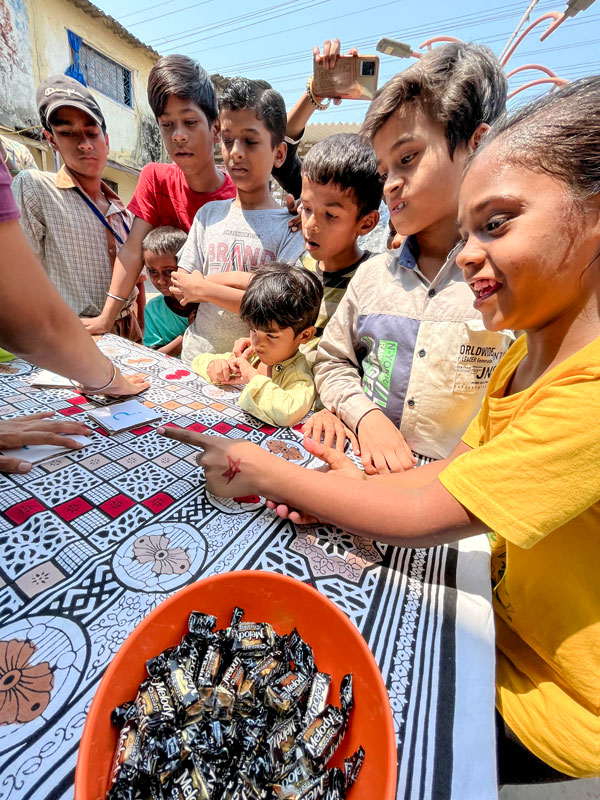
The youngsters ran a parallel drive on social media too. The club released a short film on Instagram that drew a parallel between the treatment of girls and that of dolls, “emphasising the objectification and dehumanisation experienced by women in our community. The thought-provoking narrative resonated with viewers, resulting in an overwhelming response. Within a short span, the film reached over 12,000 people, amplifying the message against women’s trafficking and sparking further discussion.”
The Rotaractors have gone further than raising awareness on this issue. “In order to make a tangible difference, our club has joined hands with Rescue Foundation, an organisation dedicated to rescuing girls trapped in the web of trafficking and helping them return to their homes. Recognising the crucial work undertaken by the Foundation, the team organised fundraisers and successfully collected ₹10,100 to support this cause.”
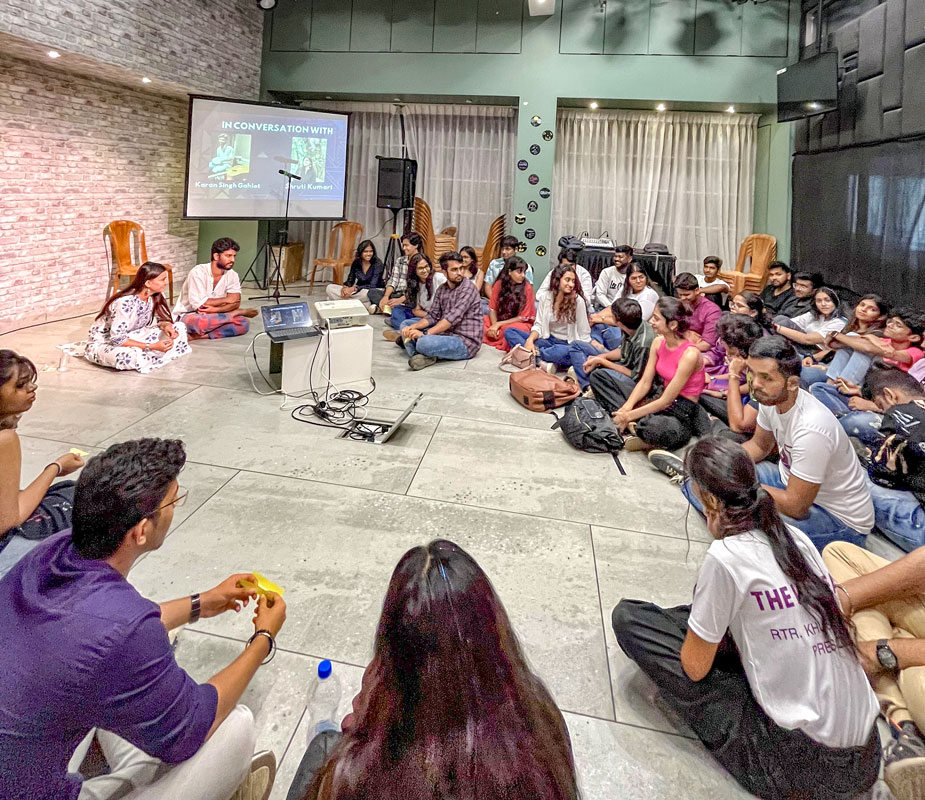
Khushi adds that the funds raised played a vital role in facilitating the rescue and rehabilitation of five girls, providing them with a chance to rebuild their lives. She explains that an NGO in Kandivali called Huge has been started by a crime beat journalist, who wanted to rescue girls from red light areas. The volunteers do sting operations and identify the women/girls who want to get out of the deep hole they have got into. The NGO often has to pay some money to rescue these girls and then they bring them to a rehabilitation centre.
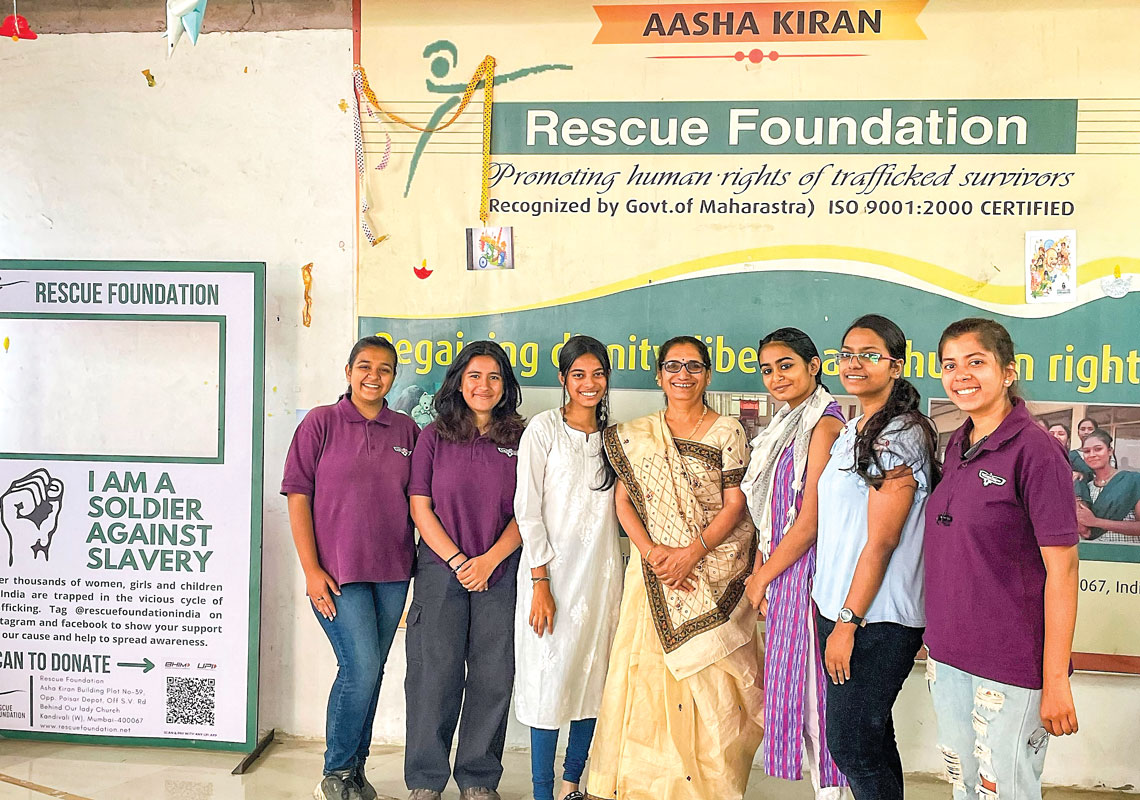
The families are then approached and the situation of the girls is explained to them; “if the family understands, and agrees to take back the girls, it is a happy ending. But unfortunately, many families reject them and these girls are kept in the rehabilitation centre, trained for some skill such as tailoring or starting a small business. The objective is to make them independent.”
The immediate past president of the club is happy that through “Cheekh, our club, where 70 per cent of the members are women, demonstrated the power of collective action and creative expression in combating women’s trafficking. By diversifying their activities, the team engaged with different audiences and fostered a broader understanding of the issue. Their efforts in raising awareness, sparking conversations, and actively contributing to the rescue of victims exemplify the club’s commitment to social change.”

